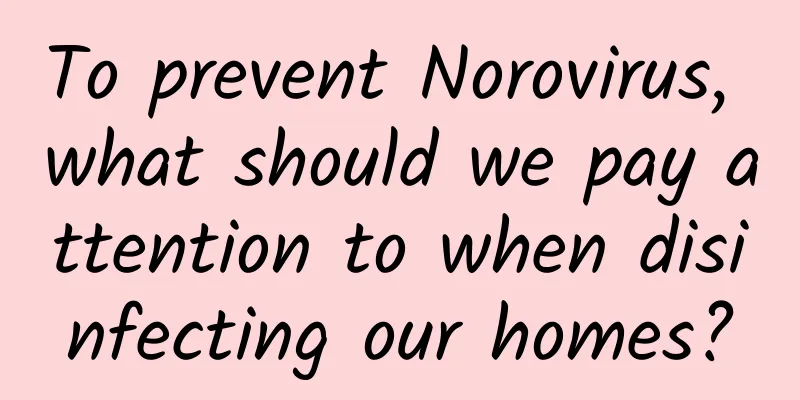For the sake of happiness, I decided to complain about my boss in my circle of friends tonight

|
It has become a basic consensus that the content on social media is not completely trustworthy. We can freely create everything about ourselves on social platforms, from our profile pictures to our names, from our age to our appearance. In line with this "self-idealized perspective", self-expression on social platforms is often idealized and exaggerated: exquisite beauty in front of the camera, but shorts and slippers behind the camera; clean and tidy in front of the camera, but nowhere to put feet behind the camera. People's lives are often not as dazzling as their carefully planned posts, and everyone is presenting "ideal content" to others. But a study published last month in Nature Communications found that being authentic in self-expression on social media can make people happier. This study did this To assess whether a person truly expresses himself, an indicator that can represent the "self" is needed. The researchers chose "personality". Different personalities can lead to different thoughts, ideas and actions of individuals, so it is a unique psychological indicator that can represent the "self" to a certain extent. This indicator can be quantitatively evaluated with the help of the "Five-Factor Personality Inventory". The Five Factor Model of personality is widely used to measure personality traits. The model proposes five relatively stable and persistent personality traits: willingness to experience, conscientiousness, extraversion, agreeableness, and neuroticism. Studies have found that these five personality traits are stable across cultures and observers. In addition, many studies have linked them to a large number of behaviors, preferences, and other outcomes. | Pixabay The researchers collected data from 10,560 Facebook users over a five-year period who had completed a personality self-assessment on the "myPersonality" app and reported on their life satisfaction. At the same time, the researchers conducted a big data analysis of the participants' status updates, interactions, likes and other indicators on Facebook to objectively evaluate the personality displayed by the users. Afterwards, the researchers compared these observed "personality" data with the user's self-assessed personality results to measure whether they showed their "true side" on the platform. In defining "idealized self-expression," the study is based on the assumption that any expression that deviates from the true self is an attempt to present the self and can therefore be considered a self-idealization. In other words, it includes both good self-idealization and self-deprecation. To explore the relationship between authentic self-expression and life satisfaction, the researchers conducted a linear regression analysis and found that authentic self-expression on social media was positively correlated with increased happiness. The advantage of this study is that it is relatively more scientific and accurate to judge whether subjects truly express themselves by observing their actual behavior on the Internet rather than judging by their self-reports. The more real, the happier The above study only proved correlation, but not causation. In other words, it is not clear whether authentic self-expression leads to greater happiness or vice versa. To further study the relationship between the two, the researchers conducted a second phase of extended experiments. The researchers invited 90 participants and randomly divided them into two groups, asking them to post in a specific way on social media. The first group posted in a real way for one week, and then posted in a self-idealized way for one week. The other group did the opposite. Longitudinal experimental research design includes key time points, intervention measures and surveys. The advantage of this is that it can compare the differences between different groups in the same time period, and also compare the differences between the same group of people at different times. Before the study begins, all participants will take a personality screening test, based on which the researchers will give each participant a personalized recommendation report. Based on the report, the participants can adjust their self-expression to better match their real or ideal self-expression in the study. During the two-week experiment, the two groups of participants recorded their subjective well-being, life satisfaction, and the positive or negative impact of posting on their emotions on the 7th and 14th days respectively. The results showed that participants who posted authentically reported more positive emotions, suggesting that authentic posting may lead to higher levels of well-being than self-idealized posting. How you use social media can have a lot to do with your happiness Another conclusion of the study is that the association between social media platforms and life happiness may not depend on whether people use social media, but how they use it. For example, using Facebook to passively consume content shared by others is negatively correlated with happiness, while actively sharing content and communicating is the opposite. The study also found that regardless of your personality traits, you can benefit from authentic self-expression on social media. In the past, people tended to think that socially attractive people, so-called "socially desirable personalities," benefit more from authentic self-expression, but this study refutes this view. It should be noted that although the impact of authentic self-expression on social media on happiness is significant, it is smaller in absolute terms compared to other important factors, such as income, physical health and marital status. However, the researchers believe that this study is still meaningful for understanding something as complex as happiness in life. If it can be tested in a more controlled environment, the impact of authentic self-expression on subjective well-being may be greater. In fact, there is still much research to be done on why people express themselves authentically or idealistically on social media. People may have different motivations for idealizing themselves online, whether they are not aware of it or they are doing it intentionally, and their motivations may also affect their happiness. It is also unclear whether posting authentically is better than not posting at all. But in any case, this study may be a good reminder for us. Looking at Internet celebrities from another perspective, they may be ordinary people, not the ideal images presented on social media. We often hear such advice - be yourself. Psychological research has also shown that acting in a way that is consistent with your inner view is beneficial to improving happiness. It seems that being a genuine person is not only good for others, but it also makes you feel better about yourself. Consider whether you should complain about your boss in your circle of friends tonight? References 1. Bailey, ER, Matz, SC, Youyou, W. et al. Authentic self-expression on social media is associated with greater subjective well-being. Nat Commun 11, 4889 (2020). https://doi.org/10.1038/s41467-020-18539-wPetya Eckler, Yusuf 2. Kalyango & Ellen Paasch (2017) Facebook use and negative body image among US college women, Women & Health, 57:2, 249-267, DOI: 10.1080/03630242.2016.1159268 3. Jebb, AT, Morrison, M., Tay, L. & Diener, E. Subjective well-being around the world: trends and predictors across the life span. Psychol. Sci. 31, 293–305 (2020). 4. Diener, E., Diener, M. & Diener, C. Factors predicting the subjective wellbeing of nations. In Culture and well-being, 43–70 (Springer, Dordrecht, 2009). 5.Helliwell, JF How's life? Combining individual and national variables to explain subjective well-being. Econ. Model. 20, 331–360 (2003). 6.McCrae, RR & John, OP An introduction to the five-factor model and its applications. J. Pers. 60, 175–215 (1992). 7.Goldberg, LR The development of markers for the Big-Five factor structure. Psychol. Assess. 4, 26–42 (1992). 8.McCrae, RR & Allik, IU The five-factor model of personality across cultures. (Springer Science & Business Media, 2002). 9.Paunonen, SV Big five factors of personality and replicated predictions of behavior. J. Pers. Soc. Psychol. 84, 411–424 (2003). 10. Schwartz, HA et al. Personality, gender, and age in the language of social media: the open-vocabulary approach. PLoS ONE 8, e73791 (2013). Author: Shi Ruizhi Editor: Li Xiaoqiu |
<<: For the baby's health, the doctor inserted a foot-long silver needle into my stomach
Recommend
Girls have no hair on their temples
We all know that sideburns are part of human hair...
Pregnant woman stretches unconsciously while sleeping
During pregnancy, women need to be very careful a...
Is cupping good for women?
Taking care of your body is something that everyo...
eMarketer: 51% of US sports fans watch the Olympics on TV while accessing the internet
199IT original compilation Television remains the...
Can I eat oysters while preparing for pregnancy?
After a period of married life, one will be prepa...
How to treat watery yellow leucorrhea?
Under normal circumstances, the amount of leucorr...
Is breast enhancement cream harmful to the body?
In life, many women with small breasts will try a...
How to regulate postpartum puffiness_How to deal with postpartum puffiness
Puffiness is a common problem nowadays, but it al...
The benefits of milk powder for women
Milk powder is not just for babies. In fact, midd...
How to regulate women’s weak spleen and stomach?
Women with weak spleen and stomach need to adjust...
How to regulate women's irregular menstruation and high androgen levels?
High levels of male hormones in women are a relat...
Will my milk supply decrease during menstruation?
After a girl gives birth to a baby, she will feed...
36 weeks pregnant, stomach pain
Every mother has to go through 10 months of pregn...
What are the symptoms of calcium deficiency in middle-aged women?
For all of us. Calcium deficiency is a common sym...
eMarketer: Chinese mobile phone users sent 699.2 billion text messages in 2015
199IT original compilation The number of text mes...









